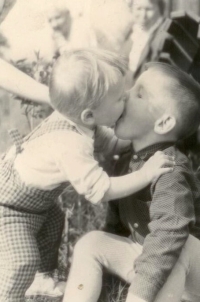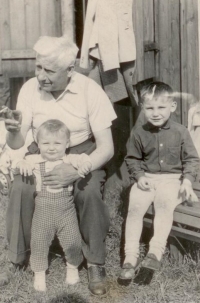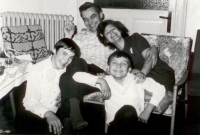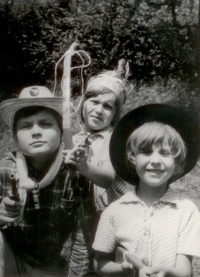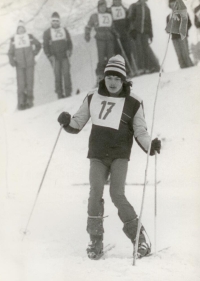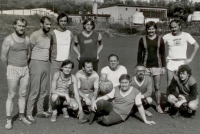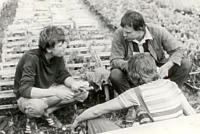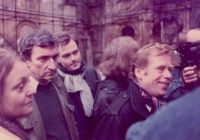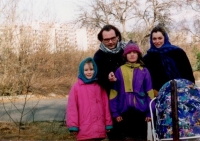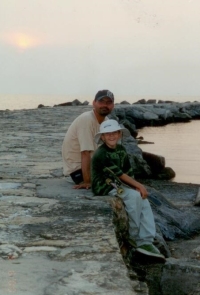If the State Security hadn’t chased us around Chomutov, not even a dog would have barked at us

Download image
Jindřich Tomášek was born on 11 December 1962 into the family of a Czechoslovak People’s Army officer. For this reason, the family moved first from Most to Abertam and then to Chomutov. There, as a child visiting his grandparents, he experienced the invasion of Warsaw Pact troops on 21 August 1968. In 1977 he entered the Chomutov grammar school. But he did not finish it, he had to get married, his son was born and he started working as a worker at the power plant in Prunéřov. Already in high school, his resistance against the communist regime was growing in him. In 1986 he divorced and signed Charter 77. Two years later, he was fired from the power plant, where he had become a machinist. He could not find a job after that and was only hired by Czechoslovak State Railways as a maintenance worker. He participated in underground and Charter 77 events. However, State Security did not allow him to attend events during Palach Week in January or the anniversary of the 1968 invasion in August. The exception was Palach Week in 1989, where he says he first experienced fear after a police intervention. In November 1989, he participated in the reproduction and distribution of leaflets in Chomutov. In 1990, he briefly joined a hospital in Chomutov as an orderly, then, thanks to his contacts, got a job in Prague as an advisor to the Security Information Service (BIS). In 2001, he founded a consulting firm that operated in the Balkans. In 2018 he quit the business and took early retirement. Since then, he started ringing the bell at the Church of St. Barbara in Otvice near Chomutov. In September 2023, he was living in Otvice. Story recorded thanks to a grant from the City of Chomutov.
